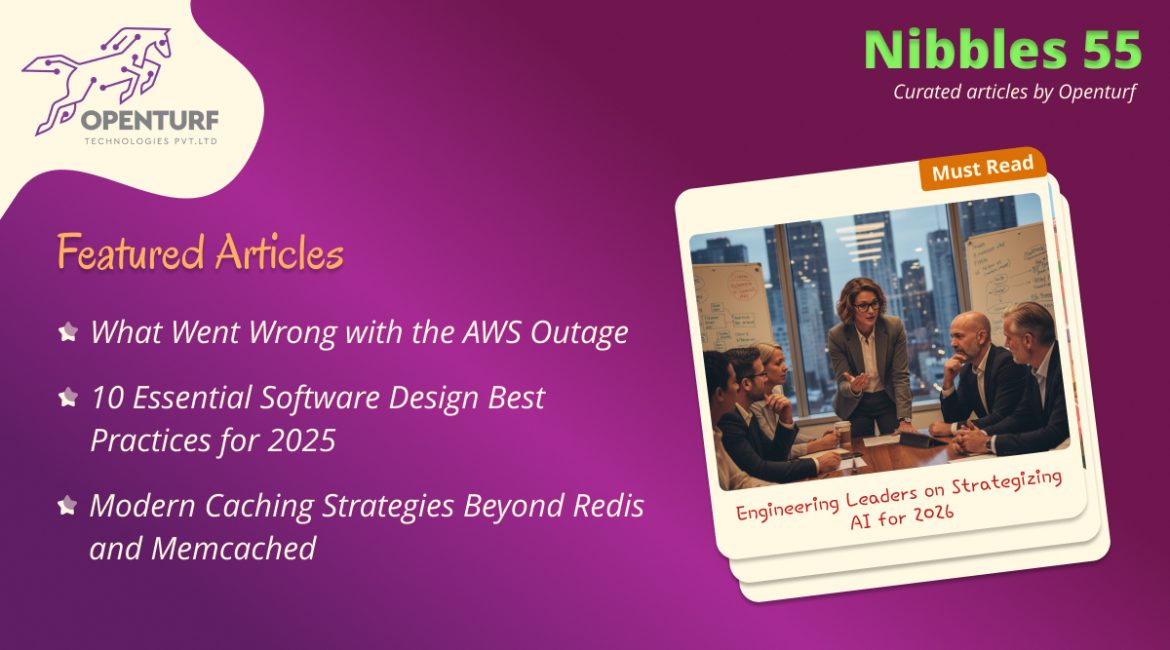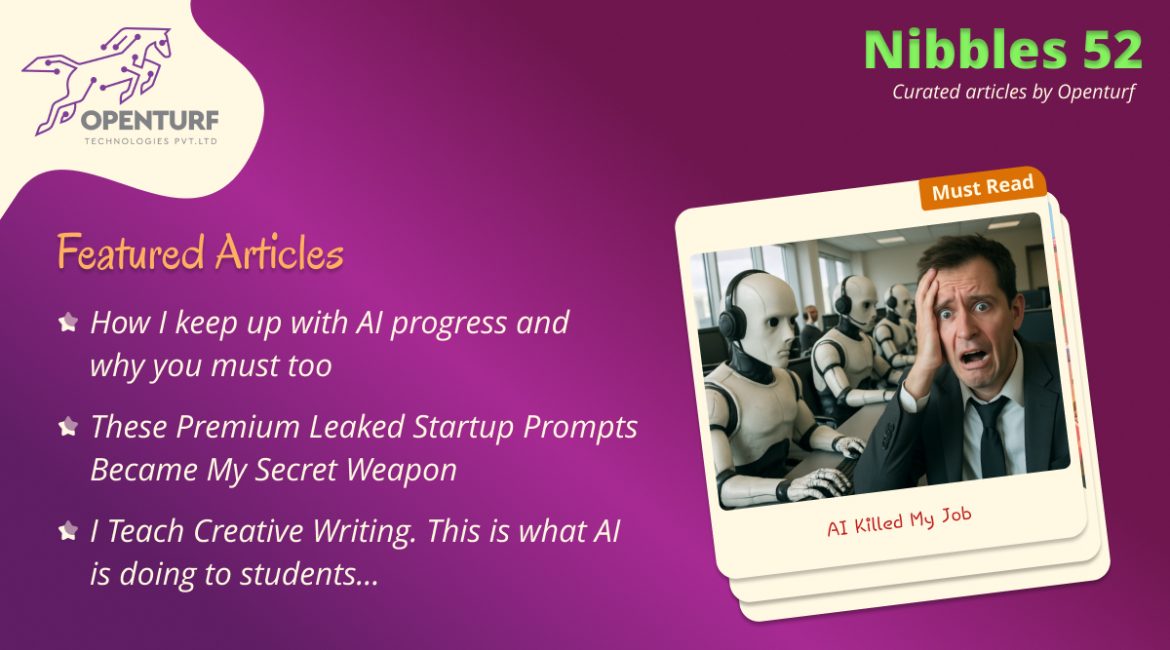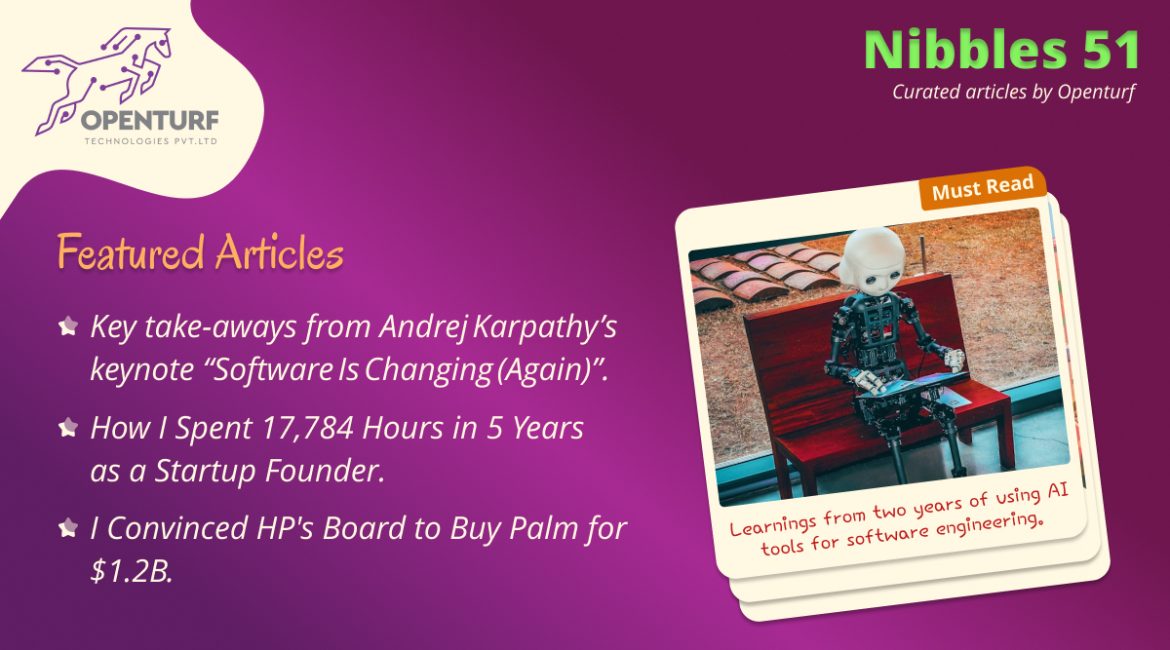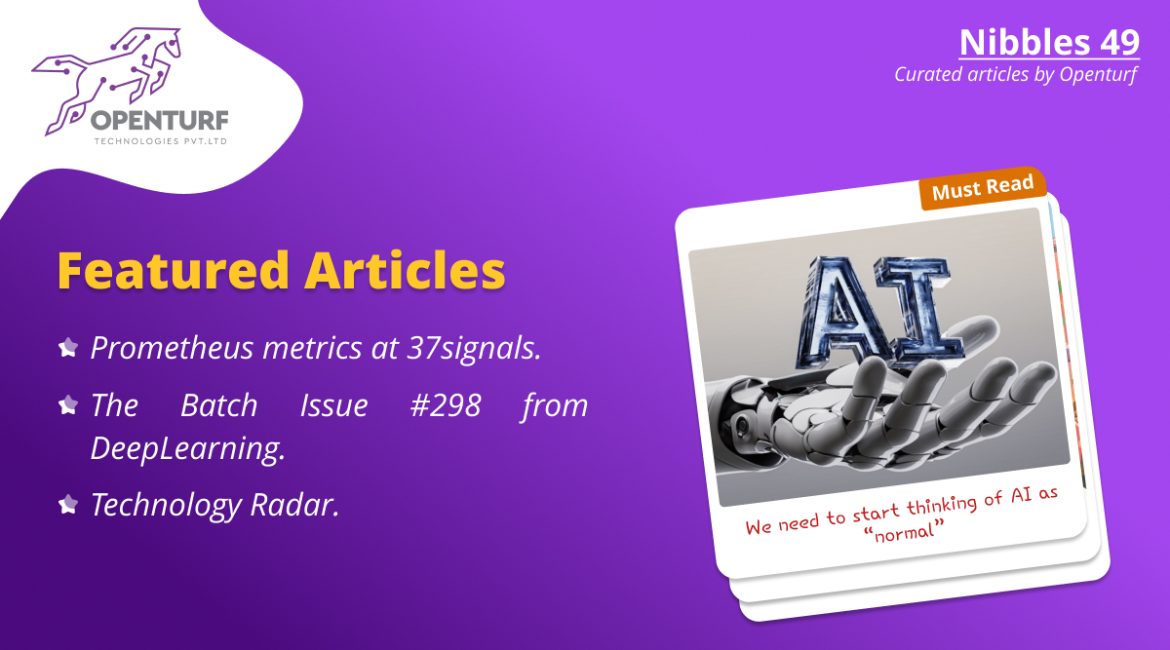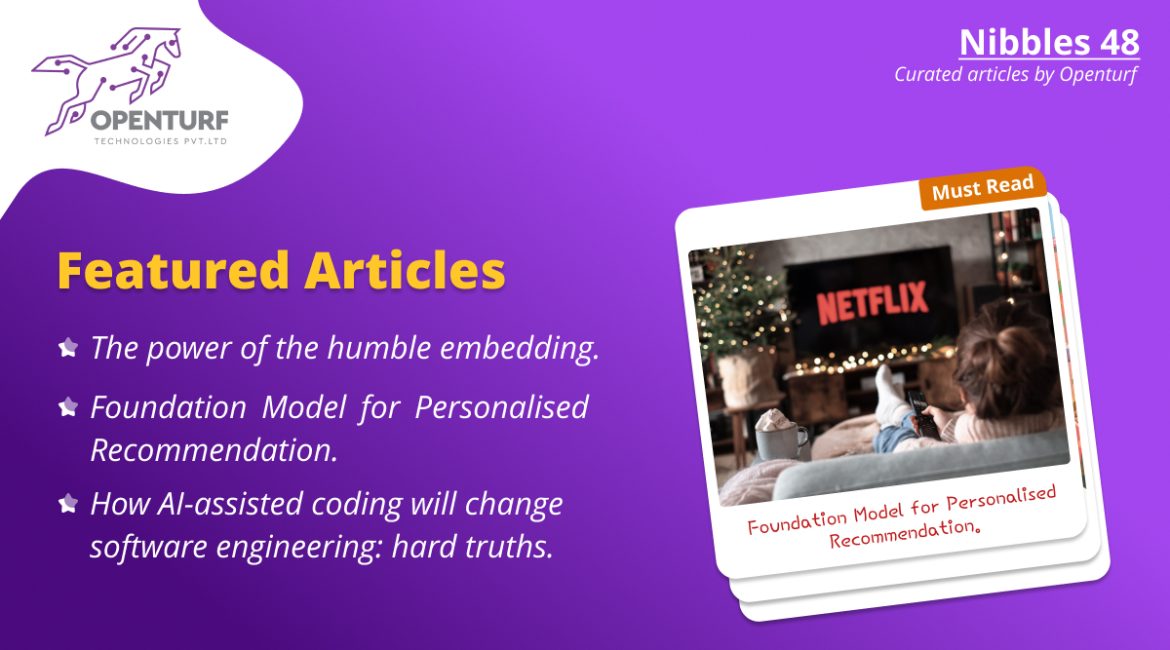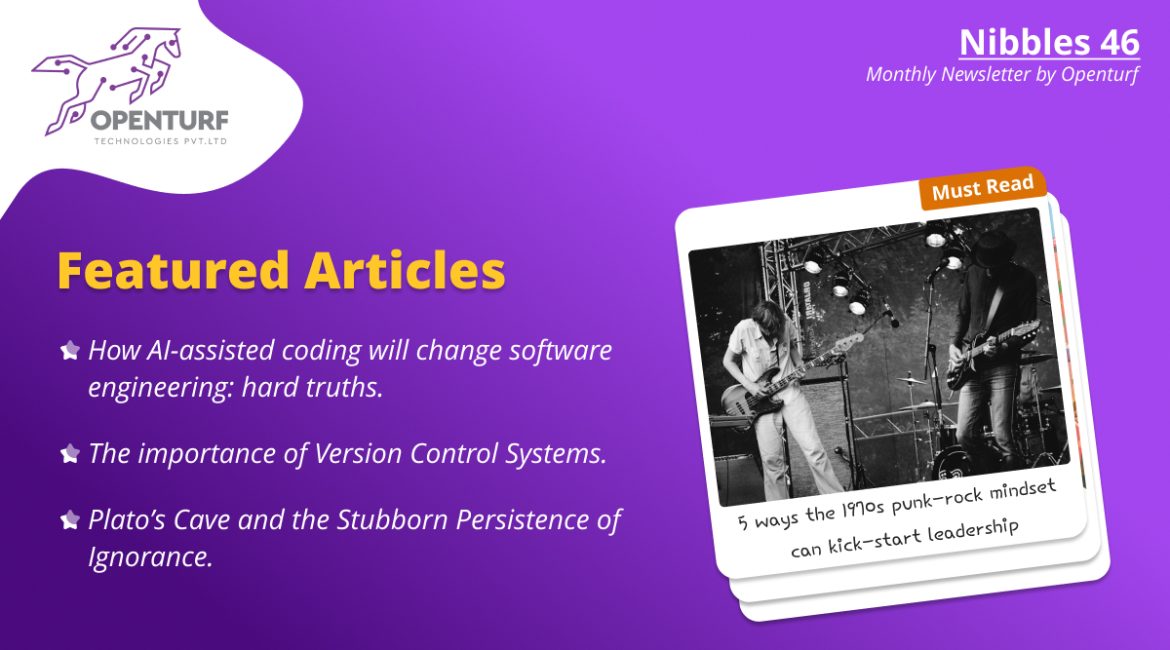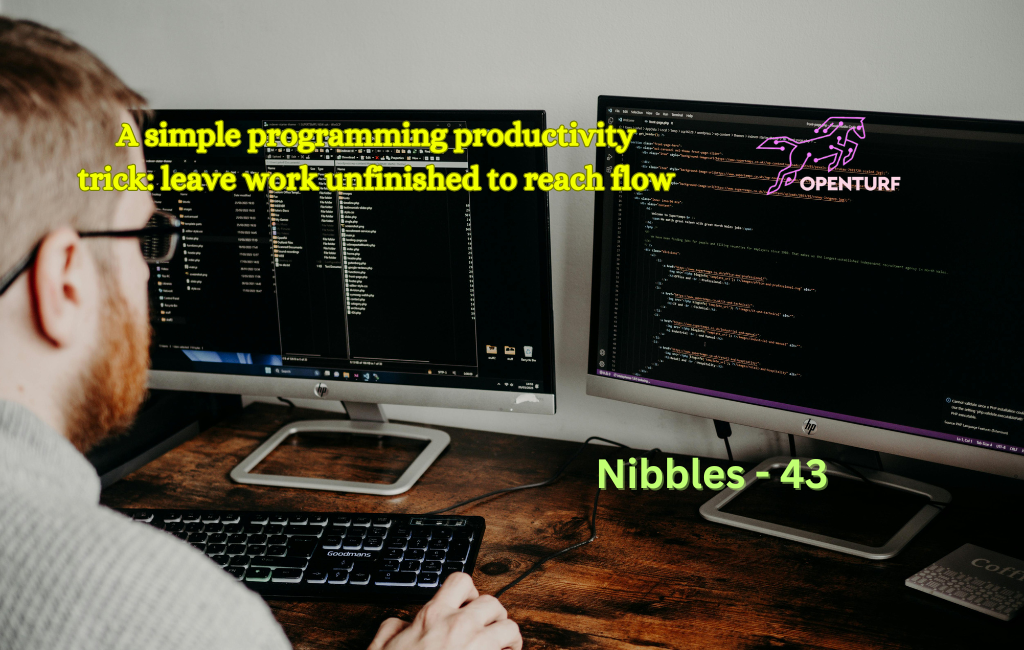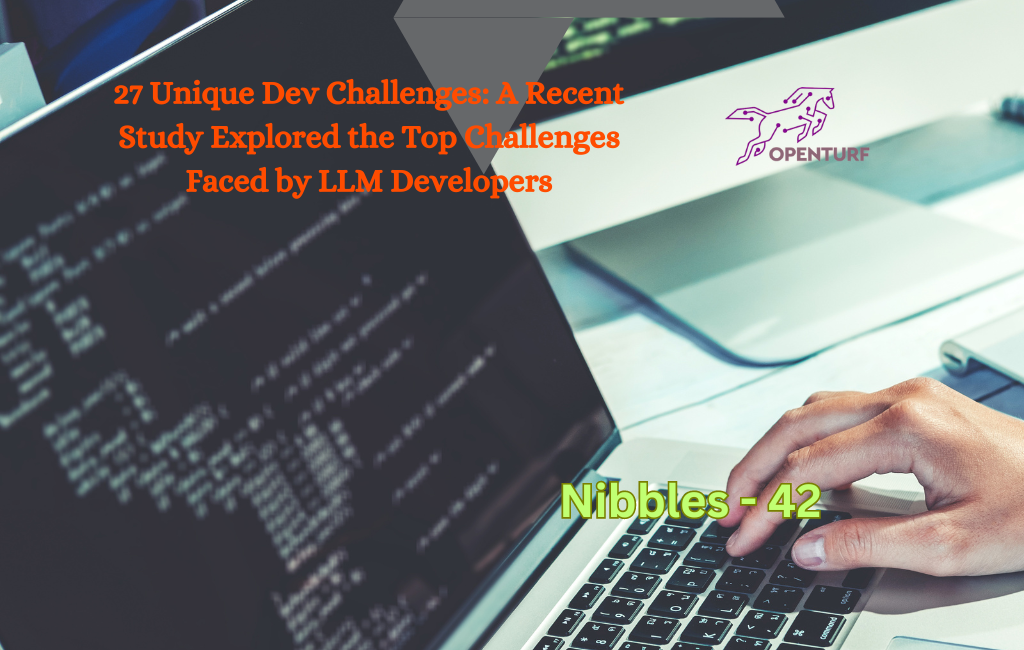A Curated Collection of Articles That Will Stand the Test of Time Every month, Nibbles attempts something simple and deceptively hard:to curate articles that are worth your time. Not trending.Not loud.Not driven by the algorithm of the week. As the year comes to a close, we found ourselves asking a...
Best of Nibbles 2025
What Went Wrong with the AWS Outage
The massive outage in Amazon Web Services’ US-EAST-1 region was traced to a race condition in the DNS automation of the DynamoDB service. An empty DNS record and automation failures propagated across multiple AWS services, disrupting dozens of major websites and apps. Read more: Network World article Engineering Leaders on...
How I keep up with AI progress (and why you must too)
"How I Keep Up With AI Progress" outlines a deliberate strategy to stay informed amid the noise of AI hype and skepticism. The author advocates curating a high-signal feed from credible voices (like Simon Willison, Karpathy, and select researchers), following original sources from AI labs, and practicing intentional daily skimming...
Key take‑aways from Andrej Karpathy’s keynote “Software Is Changing (Again)”
Three paradigms of software Software 1.0 – traditional hand‑written code.Software 2.0 – neural‑network “weights as code”, produced by training on data.Software 3.0 – large‑language‑model computers that you “program” with English prompts; the prompt is now the source code. Take a look at the video here Learnings from two years of using AI tools for software engineering...
Nibbles 50
For our 50th edition we wanted to go back and shortlist five articles that stand the test of time, in other words classical. In other words if one has to read only 5 articles of the 200 odd curation, we are confident that these 5 will stand the test of...
We need to start thinking of AI as “normal”
The article "Is AI Normal?" from MIT Technology Review examines the polarized discourse surrounding artificial intelligence. While some experts, like OpenAI's Sam Altman, envision AI's impact as transformative as the Renaissance, public sentiment leans toward concern, with over half of Americans expressing apprehension about AI's future. In contrast, Princeton researchers...
How AI-assisted coding will change software engineering: hard truths
This Pragmatic Engineer Newsletter article, featuring insights from Addy Osmani, explores the evolving impact of AI-assisted coding on software engineering. It highlights the transformative potential of AI tools while addressing the nuanced realities behind their usage. Key Points: AI Adoption and Tooling Trends:Since the release of ChatGPT in 2022, AI...
How AI-assisted coding will change software engineering: hard truths
The article highlights how AI coding tools (like GitHub Copilot) will automate much of the “grunt work” of programming, freeing engineers to focus on higher-level tasks such as design, architecture, and complex problem-solving. Junior developers may write less boilerplate code, but must learn to collaborate effectively with AI and critically...
A simple programming productivity trick: leave work unfinished to reach flow
The article from Engineer's Codex shares four productivity tips for software engineers: leaving tasks slightly unfinished to regain flow easily, mastering keyboard shortcuts, organizing frequently used commands and links in a searchable document, and learning to say "no" to low-impact or redundant tasks. Each tip emphasizes efficiency, focus, and simplifying...
27 Unique Dev Challenges: A Recent Study Explored the Top Challenges Faced by LLM Developer
This article explores 27 challenges faced by developers working with Large Language Models (LLMs), including issues around data handling, model optimization, and ethical concerns. It highlights insights from a recent study to help understand these complexities in AI development.Read more Climbing the Ladder: Proven Ways to Elevate Your Position as...


